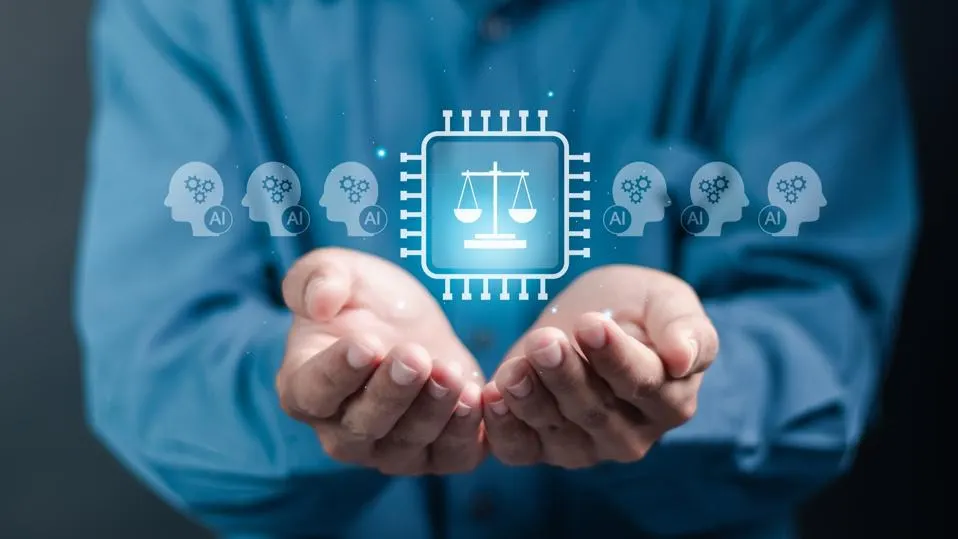Business Leaders Still Aren’t Prepared For The AI Revolution
29 July 2024
When the internet went mainstream at the end of the last century, many businesses that were formerly household names paid the price for failing to adapt.
I believe that AI will be even more transformative to business and society. However, in my work with companies of all shapes and sizes, I see that many of them are still not ready for the changes to come.
In fact, the main problem I encounter is that leadership are woefully underprepared for a revolution that’s already underway.
The speed at which AI, particularly the latest generation of generative AI tools and large language models, has emerged has been overwhelming. Where companies have adapted, it has often taken the form of “bolting on” a chatbot. From Windows to the iPhone, it’s hard to find a software platform that hasn’t scrambled to hastily add natural language capabilities.
But in my opinion this isn’t anywhere close to making the most of the possibilities that are on offer. In fact, I find myself struck, on an almost daily basis, by the gap between the potential of AI and leaders’ understanding of how dramatic the change will be.

Often, it’s simply viewed as a new way of interfacing with machines – giving instructions with words rather than clicking icons or entering code.
Even tech giants like Google or Amazon, I would argue, have found themselves caught off-guard. Sure, both have developed chatbots and integrated them into their services in a number of ways. But have they captured the potential of AI to radically shift the paradigm when it comes to online search or shopping?
This is how they built empires in the early days of the internet age, but I’d argue they haven’t yet managed to leverage AI to replicate the same transformative impact. By failing to do so, they’ve left the doors open to others who probably will.
So what’s stopping them? Is it a question of strategic misalignment or simply not thinking big enough? And what challenges must they overcome if they don’t want their organizations to become the next Blockbuster, Borders or Kodak?
The Big Picture
In my experience, one of the biggest failures of leadership vision is seeing AI as merely another tool that helps them do things they already do rather than reshaping what they do entirely.
Let’s go back to the example of the internet. Going online didn’t just let companies connect with customers in new ways using email and websites. It totally revolutionized the marketing world, giving birth to pay-per-click advertising, search engine optimization, and today’s AI-fueled, personalized, targeted marketing campaigns.
Google wasn’t the first to let us search the internet using an index of web pages, but it worked out how to build this capability into a viable business via Adwords and paid-for search placement.
Likewise, Amazon wasn’t the first online store, but it pioneered personalized recommendations, next-day infrastructure and the online marketplace, reimaging the entire business of retail from top to bottom.
Ironically enough, online search is one of the established digital business models that AI is threatening to disrupt first. ChatGPT and other large language models (LLMs) like Anthropic’s Claude can reduce the need for users to browse pages of results to find the knowledge they need, instead providing straight-to-the-point answers in plain language.
Yes, Google is in the process of integrating its Gemini chatbot into Google Search, just as Microsoft has done with OpenAI’s GPT-4 and its Bing search engine. But isn’t this just another case of “bolting on” a new tool rather than rethinking information services from the ground up?
I feel it’s a case of businesses not thinking big enough about the possibilities on offer. Often, we see companies engaged in small-scale experiments or limited use cases that improve experience or efficiency across a small subset of features.
There are some positive examples out there. Recently, I spoke to a senior executive at Boston Consulting Group, who told me that all of their consultants are being given access to generative tools that allow them to solve problems in two days, which would have previously taken two weeks.
What I would really like to see, though, is more leaders thinking even bigger. Rather than thinking about how it could be applied to individual processes, we should be envisioning how it can be used to transform entire business models, industry dynamics, and customer experiences.
The New Titans?
The scale of the opportunities on offer and the lack of vision of many current business leaders will both contribute to the seismic shifts all industries will experience in the near future.
Within the next five years, I expect to see the emergence of businesses that will take their place as the new titans of the AI age – possibly unseating existing giants as they do so.
Today’s tech giants built on the foundations laid down by the giants of yesterday – communications networks laid down by telcos, for example – to build their empires. Likewise, tomorrow’s titans will stand on the shoulders of the giants that built the cloud servers and foundation models of today.
These younger, AI-native businesses will solve problems that elude even the most technologically-capable enterprises today. And they aren’t just technology problems. Take buy-in, for example – their workforces won't be scared of being replaced by AI because their roles will be enabled and augmented by AI. The type of jobs described by the World Economic Forum when it stated that AI will create more jobs than it displaces. Jobs that couldn’t exist without AI.
To keep up, today’s leaders must proactively address skills gaps and invest in continuous learning in order to develop an AI-ready workforce.
They also have to develop guardrails and the robust framework around ethical, transparent and responsible AI that will be critical to ensuring AI doesn’t cause more problems for their business than it solves.
The inescapable reality is that every company is becoming an AI company, and most important job facing leaders today is to prepare for this change. Organizations that survive and prosper will be those led by individuals who understand this, and who aren’t afraid to think big and take bold actions to embrace it.
Related Articles
Will AI Solve The World’s Inequality Problem – Or Make It Worse?
We are standing on the cusp of a new technological revolution. AI is increasingly permeating every aspect of our lives, with intelligent machines transforming the way we live and work.[...]
How You Become Irreplaceable In The Age Of AI
In a world where artificial intelligence is rapidly advancing, many of us are left wondering: Will AI take our jobs?[...]
Why Apple Intelligence Sets A New Gold Standard For AI Privacy
In the rapidly evolving world of artificial intelligence, privacy concerns have become a hot-button issue.[...]
Can Your Device Run Apple Intelligence? What You Need To Know
Apple's announcement of Apple Intelligence has sent waves of excitement through the tech world.[...]
10 Amazing Things You Can Do With Apple Intelligence On Your IPhone
Apple Intelligence is poised to revolutionize the iPhone experience, offering a suite of AI-powered tools that promise to make your digital life easier, more productive, and more creative.[...]
Agentic AI: The Next Big Breakthrough That’s Transforming Business And Technology
The world of artificial intelligence is evolving at a breakneck pace, and just when you thought you'd wrapped your head around generative AI, along comes another game-changing concept: agentic AI.[...]
Sign up to Stay in Touch!
Bernard Marr is a world-renowned futurist, influencer and thought leader in the fields of business and technology, with a passion for using technology for the good of humanity.
He is a best-selling author of over 20 books, writes a regular column for Forbes and advises and coaches many of the world’s best-known organisations.
He has a combined following of 4 million people across his social media channels and newsletters and was ranked by LinkedIn as one of the top 5 business influencers in the world.
Bernard’s latest book is ‘Generative AI in Practice’.










Social Media